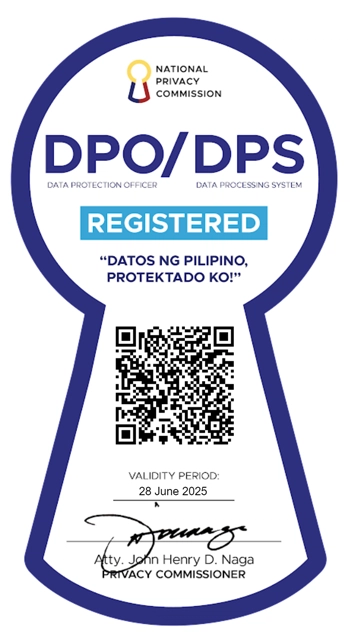10 Bookkeeping Mistakes Entrepreneurs Make that Lead to Business Failure

For small business owners, the upkeep of their financial records can become one of the most tedious if not challenging tasks that they face as bookkeeping problems can often take up hours to resolve.
Now is the time to make some quick and easy changes in order to upgrade and enhance your bookkeeping system; turning it from a time-consuming task into a tool to achieve your company’s goals.
Many businesses still encounter many difficulties in maintaining their bookkeeping and other financial records.
Bookkeeping can also become your most trusted weapon and ally in bringing in growth and developing new strategies to improve your business.
It is only with proper and consistent financial documentation that a company can analyze and clearly see options and solutions that can help in effectively managing and expanding the business in the long run.
In this article, we look into some of the most common bookkeeping mistakes and how you can avoid it to ensure that your records are managed well.
10 Common Bookkeeping Mistakes that Business Owners Make
-
Poor record-keeping
This common bookkeeping mistake to avoid is one that most businesses, regardless of its scale and level of maturity, can still encounter.
Many companies may still rely on paper receipts and invoices and often, we could lose them if not recorded accordingly.
While small expenses can seem like a harmless matter, properly documenting all your expenses can provide the documentation, especially during internal and external auditing sessions.
Sometimes, even minor discrepancies can lead to penalties, which can increase your expenditures and lower profitability.
-
Improper categorization
If your team is not adept in formal bookkeeping practices, this might become a bookkeeping mistake that will be hard to avoid.
Accurately tracking your business’ income and expenses and placing them in the correct categories ensures proper measurement of profitability.
It can also showcase which areas you may need to reduce expenditures from and transfer them to develop new products and services that can increase profitability.
Having an effective bookkeeper and system allows you to know the different tax treatments of each income that go into your business, what kind of net profits you will make and what expenses you will need to make in order to pursue the task at hand. It will also show significant savings in both operations and taxes as well.
-
Mixing personal and business expense
Being able to separate both personal and business transactions is a bookkeeping error that some business owners miss out on.
Doing this is highly essential to segregate activities meant to run your business. When internal and external auditing happens, you may still need to provide additional requirements in order to determine the filing taxes.
Make sure that your bank statements are properly reconciled and matched according to the receipts and invoices that your business has made every month.
This will help minimize common accounting errors and identify potential issues, especially with your cash flow.
-
Ignoring financial statements
Financial statements allow us to look into the performance of your business in terms of profitability.
If you lack the time and attention to read it or rarely know how to interpret the information, you can either be misled with the wrong information about your business, which can also lead to poor management decisions.
This bookkeeping mistake of business owners can usually make you miss out on opportunities to generate more revenue and provide more stability for your business.
In a nutshell, financial statements allow you to stay in control of your cash flow and help you create and stick to a budget.
It also allows you to spot ways to find the best trends for your business based on your sales history.
Financial statements are important as most banks, investors and creditors look into these in order to know how your business is performing.
-
Hiring an inexperienced bookkeeper
While there are many who offer bookkeeping services at a much cheaper cost (like on an hourly rate, etc.), the quality may not be the same as hiring an in-house staff or one who has the right bookkeeping experience to assist your business.
This common bookkeeping mistake can be avoided by hiring an inexperienced bookkeeper can cause more discrepancies and additional hours of work just to correct these.
It is essential to hire a bookkeeper with an experience towards the niche of your business or someone who has had an experience working for a company in the same industry as yours.
They would have the know-how and solutions to make your bookkeeping tasks done efficiently.
-
Sales tax miscalculations
Reporting sales tax and accounting for it can become a common oversight for businesses, especially with their bookkeeping processes.
Oversight in collection and reporting of sales taxes can lead to fines and penalties and can eventually incur more costs than savings for your business.
This accounting error can also lead to incorrect sales tax data and may also result in higher sales amounts that are not balanced can lead to more losses in terms of profits.
-
Mishandling the petty cash
Business owners usually run a small amount of petty cash but have little knowledge on how to track it especially if it is a revolving fund.
In order to avoid this common bookkeeping mistake, businesses should be able to set-up a system which allows you to track the cash kept on hand for small daily tasks.
The basic activity of keeping track of receipts and documents related to petty cash expenses is a great way to start.
-
Lack of communication
While it is important to have an experienced bookkeeper on board, it's also essential to highlight and express what is important to your business in terms of how your team's work and the relationship of their operations with the budget.
Make sure to always keep your bookkeeper involved and integrated with what’s going on in the business, as this ensures that your bookkeeper can create accurate financial statements which are true and relative to what is needed in your operations.
-
Incorrect categorization of workforces
For each workforce that you employ into your business, they have a specific type of expense, which also reflects a particular tax bracket and category.
Misaligning these categorizations among your regular employees and individual contractors can lead to misfiling and overpayment of taxes.
So your bookkeeper will try to avoid this bookkeeping error in order to easily look into the tax category that applies to the contractor or staff that your business will engage with.
-
Lack of digital back-up
The world relies heavily on technologies nowadays and it is important to always ensure that your financial documents will have a backup just in case an issue arises.
It's also important for every business to always keep their financial documents as secure as possible.
Your business needs to have these digital copies prepared in situations where manual copies or even other digital copies are prepared in order to avoid potential losses.
When a business allows itself to commit bookkeeping errors, it risks itself by endangering the business into misinformation, which can become detrimental.
Engaging with accounting services will help businesses avoid these common bookkeeping mistakes and improve the way they churn out important documents like financial statements.
Many business owners still try to do the bookkeeping themselves because sometimes and because of their business schedules, may miss out on this activity because of the many things that they need to do within the day or often commit more errors in bookkeeping.
Your time as a business owner is valuable and it should be accounted for in the things that will help your business grow.
How to avoid these common bookkeeping mistakes?

Hiring an experienced bookkeeper will ease recording and documenting your day-to-day expenses, as they will know how to categorize and interpret each expense. This saves you time and efforts and will help you focus on other aspects of your business that need your utmost attention.
Engaging with an effective accounting service to help you with your bookkeeping needs will provide you the advantage of having a dedicated team that can focus on properly categorizing and recording all your business transactions.
Offshoring these bookkeeping services has also been preferred by most companies and businesses, regardless of its size and scale.
Offshoring your bookkeeping needs will get the right amount of flexibility and other advantages that can speed up your accounting and admin services, making you prepared for any obstacle and provide a faster approach to scale your business further.
Offshore bookkeepers like the ones that Offshore Business Processing provides are composed of finance specialists and accountants who are trained to international standards.
They can help manage your accounting and bookkeeping needs as well as provide a thorough financial analysis for your benefit, providing your business with cost-saving solutions to help you move towards business success.

Related Articles
Subscribe to our Newsletter
Get all our latest news, updates and exclusive offers delivered straight to your inbox.
Get all our latest news, updates and exclusive offers delivered straight to your inbox.
Get all our latest news, updates and exclusive offers delivered straight to your inbox.
Get all the latest CargoWise updates by subscribing to OBP's official newsletter.
Data Privacy Policy

Offshore Business Processing values, and respects the Privacy Rights of our Clients, Client's Customer, Business Partners, Contractors, Personnel, and other identifiable individuals or collectively "Individuals".
We are committed to protecting the privacy and confidentiality of Personal Data through adherence to our Data Privacy Principles and the implementation of reasonable and appropriate security measures to ensure fair, appropriate, and lawful processing.
Background and Scope
Offshore Business Processing as a global service provider goes beyond the borders of the residing countries. The global market requires not only the availability of communication, technology, and information systems but also the integrity and confidentiality of processing information including the Personal Data of Individuals that can be reasonably be determined from the information available.
This Data Privacy Policy sets the principles which emphasize the Offshore Business Processing's standard practices for the processing of Personal Data of Individuals. This Policy applies to all personnel and accredited 3rd party service providers who must act consistently with the principles contained in the policy. Domestic and industry-specific privacy statutory laws and regulations shall take precedence over this policy, to the extent applicable within the confines of conflicts of law principles.
Privacy Notice
This privacy notice describes the privacy practices for www.offshorebusinessprocessing.com. This applies to the Personal Information collected by this website. It will notify the user of the following:
- What personally identifiable information is collected from the user through the website, how it is used, and with whom it may be shared.
- What choices are available to you regarding the use of your data.
- The security measures in place to protect against the misuse of information.
How the user can correct any inaccuracies in the information.
Policy Changes on Websites
Any changes to our Data Privacy Policy and Privacy Notice will be made available on our website. If there are changes to how we treat our users' Personal Information, we will notify them via email or put a notification on our website.
The Personal Information/Data we hold about the users must be accurate and up to date. It is the responsibility of the users to ensure that Offshore Business Processing has up-to-date and accurate Personal Information and an active email address for your website update subscription.
What is Personal Information
Personal Information is any information whether recorded in a material form or not, from which the identity of an individual is apparent or can be reasonably and directly ascertained by the entity holding the information or when put together with other information would directly and certainly identify an individual.
Personal Information we collect on our website is First and Last Name, Email Address, Phone Number, and Company through our "contact us" page.
How and Why Do we Collect It?
Aside from our website, we obtain Personal Information in many ways including interviews, correspondence, by telephone and facsimile, by email, from your website, from media or publications, from social media, from other publicly available sources, from our website cookies, and third parties.
We collect your Personal Information for the primary purpose of providing our services to you, providing information to our clients, and marketing. We may also use your Personal Information for secondary purposes closely related to the primary purpose, in circumstances where you would reasonably expect such use or disclosure. You may unsubscribe from our mailing or marketing lists at any time by contacting us in writing.
When you visit our website, www.offshorebusinessprocessing.com, we automatically collect certain information about your device, including information about your web browser, IP address, time zone, and some of the cookies that are installed on your device. Click here to know more about our Cookies Policy. Additionally, as you browse the Site, we collect information about our web pages that you view, what websites or search terms referred you to the Site and information about how you interact with the Site. We refer to this automatically-collected information as "Device Information".
This website may include links to third-party websites, plug-ins, and applications. Clicking on those links or enabling those connections may allow third parties to collect or share data about you. We do not control these third-party websites and are not responsible for their privacy statements. When you leave our website, we encourage you to read the privacy notice of every website you visit.
Disclosure
Your Personal Information may be disclosed in some circumstances including the following:
- Third parties where you consent to the use or disclosure; and
- Where required or authorized by law.
Retention and Security Measures
Only authorized personnel has access to Personal Data and will be retained and disposed of in accordance with Offshore Business Processing's retention and disposal policies, guidelines, and applicable laws and regulations.
Offshore Business Processing implements appropriate and reasonable Technical, Organizations, and Physical Security Measures throughout the Data Life Cycle of the Personal Data that is collected. This involves preventing or at least reducing the probability of unauthorized/inappropriate access to data, or the unlawful use, disclosure, modification, and deletion to protect its confidentiality, integrity, and availability.
Quality of Personal Data and Access
It is important that Offshore Business Processing holds accurate, complete, and up-to-date Personal Data of identified Individuals. It is the responsibility of the Individuals to ensure that collected Personal Data is accurate, complete, and up-to-date. If the Individuals find that the Personal Data is outdated and inaccurate, they should advise Offshore Business Processing as soon as practicable so an update on records can be done and continued quality services will be provided.
Individuals may access, update and or correct the Personal Data by sending a letter of request subject to the approval of the management. Offshore Business Processing will not charge any fee for your access request but may charge an administrative fee for providing a copy of your Personal Data. To protect your Personal Data, we may require identification from you before releasing the requested information.
Contacting DPO
For questions and/or concerns regarding this Data Privacy Policy, use of your Personal Data, or your rights in relation to the Data Privacy Act of 2012, you may contact the Data Privacy Office in the following contact details:
Data Protection Officer
Email: dpo@offshorebusinessprocessing.com
Contact number: (+632) 7502-6411
Get all our latest news, updates and exclusive offers delivered straight to your inbox.
Get all our latest news, updates and exclusive offers delivered straight to your inbox.
Get all our latest news, updates and exclusive offers delivered straight to your inbox.
Get all the latest CargoWise updates by subscribing to OBP's official newsletter.
All Rights Reserved




